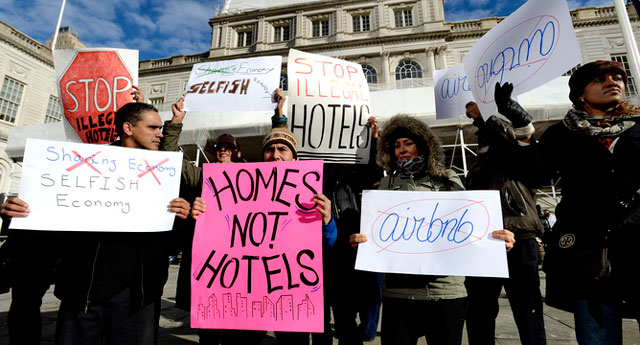
One in every thousand homes in the world is now listed on Airbnb.
Founded in 2008 in San Francisco, the website brings hosts and accommodation seekers together with more than 2,2m listings in 34 000 cities and 191 countries around the world.
Over the next three to five years, it aspires to become a “superbrand for travel”, its global head of hospitality and strategy Chip Conley said on the sidelines of the World Travel & Tourism Council’s Global Summit.
Conley said this meant it could act as a “lifestyle curator” and not only offer accommodation, but experiences and services during a trip.
The idea of being a lifestyle curator is the way a lot of hospitality companies are moving. For Airbnb, the advantage is that it is a technology company, he said.
Between 70% and 75% of its guests and hosts review each other after a stay, which means the company can quickly get a good idea about someone’s tastes, preferences and what they enjoy. This is helpful in curating an experience for them and not just a place to stay.
“Some of what we will be doing in the future will be helping to match guests and hosts or guests and places to stay in a more ‘matchmaking’ kind of way, but if a guest doesn’t want to actually have us access their data and their preferences they can opt out.”
Airbnb has about seven times as much data as the average hotel where roughly 10% of hotel guests fill out the online survey to provide feedback about their experience. The quality of data is also much better, he said.
Conley said if a guest really liked a flat in Barcelona, also booked through Airbnb in Berlin and London and are now heading to Boston, the company actually has a very good sense of what the guest will likely look for in Boston.
“Not just that, we also might be able to even give you some advice of what to do there.”
Currently, its revenue stream comes from hosts and guests. The company earns 3% on the host side and between 6% and 12% on the guest side, Conley said.
The average length of stay is twice as long as at a hotel. The average length of stay for business travellers is three times longer than for a traditional business hotel guest. Airbnb has over 100 000 corporates accounts, including Morgan Stanley and Google.
Conley said in many cases these travellers combine business and leisure travel and want to get a better sense of how to experience the city.
He alluded to the fact that Airbnb could potentially create new revenue streams by curating experiences for travellers in addition to providing accommodation.
But how does it control quality with 2,2m listings?
When he joined the company three years ago, he had never stayed in an Airbnb and thought it was just a step up from “couch surfing”, Conley said.
“I really didn’t understand it. I didn’t have an Uber app at the time, so I was old school — an example of an old dog learning a new trick.”
What he was curious about, was how it could create incentives to help hosts do the best they could do.
Conley said what he has learnt is that it is all about how they provide feedback. If the front desk clerks at a hotel got a report card at the end of their shift that indicated what the guests who checked in thought of them, they might do a better job, but they don’t get this information.
Due to the high review rate of hosts and guests on Airbnb, hosts get regular feedback — also from the company.
“Beyond that we also have the ability to see who is doing well and who is not doing well and if you are not doing well on the platform we will take you off the platform. We take down thousands of listings every month.”
- This article was originally published on Moneyweb and is used here with permission




